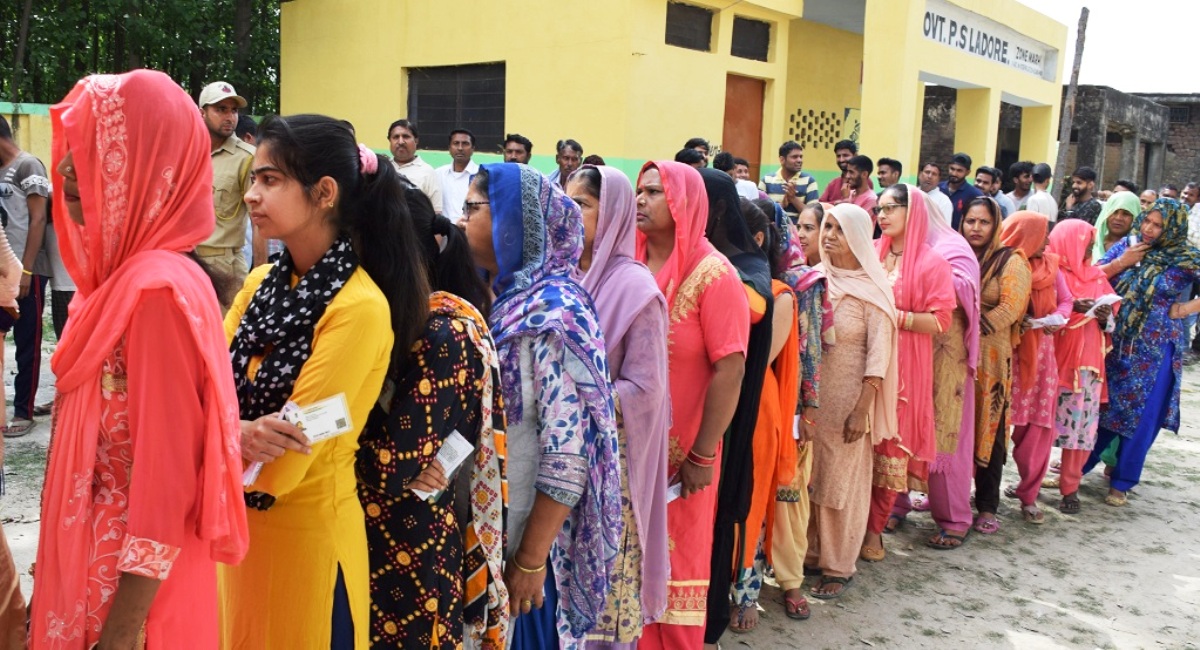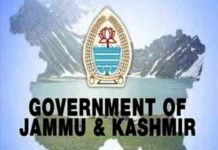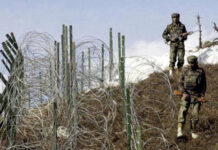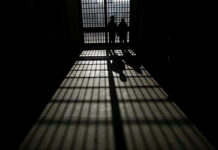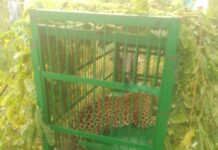KL Desk
Srinagar
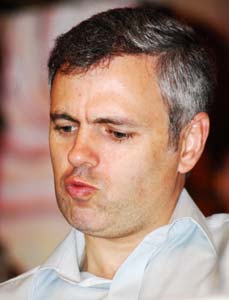
Chief minister Omar Abdullah has categorically said that the killings of two Panchayati Raj representatives in Baramula district was not a handiwork of militants. In an interview to a western news blog, chief minister said, “Our inquiries are pointing in a particular direction. What is becoming increasingly apparent is these were not militant attacks.
“There seems to be more of a personal rivalry, for various reasons which at this point in time I can’t go into,” added Omar.
“As the investigation has gone on, we’ve been able to establish links, in one case, to a surrendered, rather a released militant who had served his term in jail and had certain linkages with the deputy sarpanch, explained chief minister.
In response to a question Omar Abdullah said, “We haven’t been able to establish whether he was hired, or whether some inducements were offered or whether it was his own sort of initiative. But there has been involvement of a released militant and certain over-ground workers of the Hizbul Muhajideen group. But the motive doesn’t seem to have been militancy. The motive is other than that”.
Omar accused separatists that they don’t want the representatives of Panchayati Raj to succeed. He even accuses the people who suffered defeat by the hands of the present Panches and Sarpanches so that there would be a by-election and they can probably come and try to win.
“It is important to understand that there is a large section of people that don’t want these panches and sarpanches to succeed. Among them, first and foremost, are the separatists, because they’ve made an issue out of elections in Jammu and Kashmir, across the board, whether Parliament or assembly or otherwise. The people who they defeated in the election obviously don’t want to see them succeed. In fact, they would be more than happy to see them resign since there would be a by-election and they can probably come and try to win that seat”. Chief Minister elaborated.
He further said that the people who stayed away from the election process, out of fear or whatever other reason, would also not like to see these people succeed.
“There is a vested interest among the establishment that is also uneasy with this new class of public representatives”.
Elaborating it Omar Abdullah said, “vested interests from both political and bureaucratic side, let’s understand that you have not had a functioning panchayat system here for more than three decades. So an entire generation of political and administrative leadership has grown up without having to work with this group of elected representatives. Clearly, they would much rather not have to deal with them”.
“Now how much of that is genuine militancy and how much of it is down to a vested interest from this section of people – that remains to be seen,” he said.
Reiterating his stand that elections are not a substitute for the resolution of the problem of Jammu and Kashmir Omar said, “I have reservations and issues when the foreign minister stands up in the United Nations and says that the people of Jammu and Kashmir have time and time again shown which side they want to be on by participating in India’s democratic process. You are in effect converting an election into a referendum, which strengthens the case of those people who want to see those elections boycotted”.
Omar said that the areas, especially where the attacks have taken place, are a little shaken up. But the panchayats will start functioning again. Omar says that his confidence is based on the fact that only 52 elected representatives have actually submitted a written resignation, in a formal manner, to the block development officers.
Chief minister how ever put the number of informal resignations of Panches and Sarpanches upto nine hundred, plus.
In response to a question about the 2010 uprising in the valley Omar Abdullah said that a series of events resulted in the sort of protests on the streets, and the origins of that lie in the fake encounter that took place on the line of control in North Kashmir called Machil, where the army or a unit of the army took three people and killed them as terrorists, infiltrating the area, when they had absolutely nothing to do with that.
“The three were from an area in Baramulla called Rafiabad and that provoked a lot of anger, which did not manifest itself on the streets immediately, it simmered under the surface. But what it did do was it allowed the separatist leadership, particularly Syed Ali Shah Geelani, to start a campaign of protests – what he called the “Quit Kashmir” program. He started issuing calls for protest on Fridays after prayers. The intensity of the protests was not very large, but every Friday we had protesters coming out from the mosques and then engaging the security forces in stone-pelting sessions”. Omar said.
Hinting to the killing of Tufail Matto, a student in the downtown area chief minister said that during the course of one of those protests, a tear smoke shell hit a young man. The police continue to maintain that he was part of the protests. The general opinion is that he was an innocent bystander, but he died as result of the tear smoke shell.
“During his burial, another youth was severely beaten by the CRPF [Central Reserve Police Force], he was in the hospital for a while and subsequently died in hospital. During his funeral, some youngsters tried to set a police vehicle on fire. To defend themselves, the security forces opened fire, then you had another death and basically that spiraled. So, every death resulted in more protests and more deaths and the area of protests just spread. You reached the point where virtually every corner of the valley was seeing protests on a regular basis”. Said the chief minister.
Omar said that to some extent these protests were sustained because the American president was visiting that year in October, there was this belief that if Kashmir is kept on the boil until such time, you could possibly see the American president making a statement about Kashmir that would be contrary to what India would have wanted to hear from him.
I think somewhere the realization dawned that — what are we protesting about, a hundred plus people have died, what has changed on the ground? We are no closer to the solution to what one calls the Kashmir issue,” said Omar. He added, “A certain sort of agitation fatigue had also crept in”.
Chief minister added saying that there is a desire for a political solution to the Kashmir problem — it does not always manifest itself in an expression of rage. Sometimes circumstances arise that allow for the rage to build up and show up as it did in 2010.
“But it is not constantly simmering under the surface. If it were, why is it not visible today? Why was it not visible last year?” He asked and added, so I think it is very simplistic on the part of the separatists to suggest that this rage is constantly boiling under the surface”.
When asked that does he think the center has any interest in pursuing a meaningful effort to reach some sort of lasting solution on Kashmir, chief minister said, “I do think they have the interest, I just don’t think they have the political capital to do it right now. Any sort of political solution is going to involve some amount of give and take and I am not talking about territorial”.
When asked to elaborate the give and take and whom it may involve, Omar said, “ obviously between the state and the center. Different parties have taken different positions vis-?-vis where they see the solution to this problem lie. The party I belong to says that your solution lies in the pre-1953 Kashmir Accord where the government of India was only responsible for currency, communication, defense and foreign affairs. Everything else was the domain of the state”.
“The Supreme Court of India had no jurisdiction over Jammu and Kashmir, the Election Commission of India , the Comptroller and Auditor General, the Indian Administrative Services, the Indian Police Services, none of these institutions had jurisdiction over Jammu and Kashmir”. Chief minister added.
Talking about the Kashmir solution, Omar Abdullah said, “a solution will lie somewhere between what we are asking for and what exists today. I will be the first person to tell you that there are institutions that benefit the people of Jammu and Kashmir: the CAG, the election commission, the Supreme Court. So why deprive the people of those institutions?”
Omar said that Pakistan is interesting in keeping the pot boiling. “ Actually boiling would be too strong a word. They are keeping it simmering,” Omar said.
About the future alliances with Congress chief minister said that he believes that congress party will continue to align with his National Conference.
“I believe so. Because at this point I can only think of two political parties that would probably be interested in an early election, the Samajwadi Party and the Trinamool Congress”.



